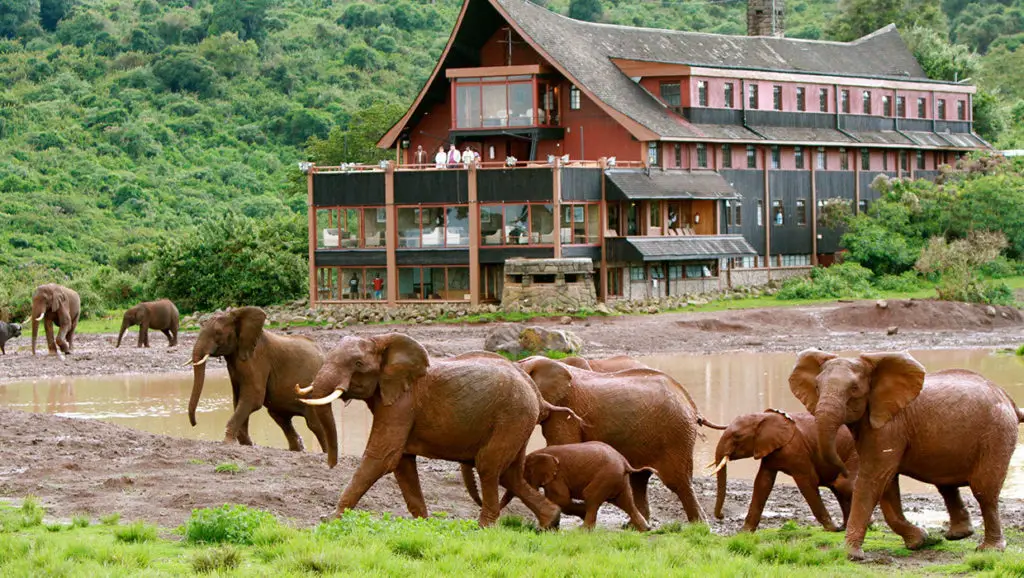Meru town, the administrative center of Meru County in Kenya, is a vibrant hub of diverse economic activities. The town’s economy is primarily driven by agriculture, with a growing emphasis on trade, small-scale industries, and service sectors.
Meru’s strategic location near Mount Kenya, coupled with its favorable climate, has contributed to its development as a significant agricultural and commercial center in the Eastern region of Kenya.
What is the primary economic activity in Meru town?
Agriculture stands as the backbone of Meru’s economy. The region’s fertile soils and favorable climate support a wide range of crops. Key agricultural activities include:
- Cash crop production: Coffee, tea, and miraa (khat)
- Food crop cultivation: Maize, beans, potatoes, and bananas
- Horticulture: Fruits and vegetables for local and export markets
- Dairy farming: Milk production for local consumption and processing
Agriculture not only provides sustenance for the local population but also forms the basis for many secondary economic activities in the town.
How significant is trade in Meru’s economy?
Trade plays a crucial role in Meru’s economic landscape. The town serves as a commercial hub for the surrounding agricultural areas. Key aspects of trade include:
- Agricultural produce markets: Central points for farmers to sell their products
- Retail shops: Catering to daily consumer needs
- Wholesale businesses: Supplying goods to smaller retailers in the region
- Export trade: Particularly for cash crops like coffee and tea
The growth of trade has contributed to the urbanization of Meru and the development of supporting infrastructure.
What industries are present in Meru town?
While Meru is not heavily industrialized, it hosts several small to medium-scale industries:
- Agro-processing: Coffee and tea processing plants
- Dairy processing: Milk pasteurization and product manufacturing
- Textile and apparel: Small-scale clothing and fabric production
- Furniture making: Utilizing local timber resources
- Metal fabrication: Production of agricultural tools and equipment
- Food processing: Grain milling and fruit processing
These industries provide employment opportunities and add value to local agricultural products.
How does the service sector contribute to Meru’s economy?
The service sector in Meru has been growing, contributing significantly to the town’s economic diversification. Key service areas include:
- Financial services: Banks, microfinance institutions, and insurance companies
- Education: Schools, colleges, and universities
- Healthcare: Hospitals, clinics, and pharmacies
- Hospitality: Hotels, restaurants, and tourism-related services
- Transportation: Local and inter-city transport services
- Professional services: Legal, accounting, and consulting firms
This sector’s growth reflects Meru’s transition towards a more urban and service-oriented economy.
What role does tourism play in Meru’s economy?
Tourism is an emerging sector in Meru’s economy, leveraging the town’s natural and cultural assets:
- Gateway to Meru National Park and Mount Kenya
- Cultural tourism showcasing Meru traditions
- Agro-tourism centered around coffee and tea plantations
- Conference and business tourism
- Eco-tourism in surrounding forests and conservancies
While not as developed as in other parts of Kenya, tourism in Meru shows potential for growth and economic contribution.
How does the informal sector contribute to Meru’s economy?
The informal sector plays a significant role in Meru’s economy, providing employment and services:
- Street vendors and hawkers
- Small-scale artisans and craftspeople
- Informal transport providers (e.g., boda boda motorcycle taxis)
- Home-based businesses
- Casual laborers in agriculture and construction
This sector absorbs a considerable portion of the workforce, especially youth and those without formal employment.
What is the state of entrepreneurship in Meru?
Entrepreneurship in Meru is vibrant and growing:
- Small and Medium Enterprises (SMEs) in various sectors
- Youth-led startups, particularly in technology and agribusiness
- Women’s groups engaged in collective business ventures
- Microenterprises supported by microfinance institutions
- Innovation hubs and incubators fostering new business ideas
The entrepreneurial spirit in Meru is contributing to job creation and economic diversification.
How does Meru’s economy compare to other major towns in Kenya?
Here’s a comparison of Meru’s economy with other significant towns in Kenya:
| Aspect | Meru | Nakuru | Eldoret |
|---|---|---|---|
| Main Economic Driver | Agriculture | Agriculture, Tourism | Agriculture, Manufacturing |
| Industrial Development | Limited | Moderate | Significant |
| Service Sector Growth | Moderate | High | Moderate |
| Agricultural Products | Coffee, Tea, Miraa | Dairy, Horticulture | Maize, Wheat |
| Tourism Significance | Emerging | High | Low |
| Informal Sector Size | Large | Large | Large |
This comparison highlights Meru’s strengths in agriculture and its potential for growth in other sectors.
What are the major challenges facing Meru’s economy?
Meru’s economy faces several challenges:
- Over-reliance on agriculture and vulnerability to climate changes
- Limited industrial development
- High youth unemployment
- Inadequate infrastructure in some areas
- Market access issues for agricultural products
- Competition from larger urban centers
- Land fragmentation affecting agricultural productivity
Addressing these challenges is crucial for sustainable economic growth in Meru.
How does the county government support economic development in Meru?
The Meru County government plays a crucial role in supporting economic development:
- Infrastructure development: Roads, markets, and public facilities
- Agricultural support: Extension services and input subsidies
- SME development: Training programs and financial support
- Investment promotion: Attracting investors to the region
- Policy formulation: Creating business-friendly policies
- Education and skills development: Vocational training initiatives
These efforts aim to create an enabling environment for economic growth and diversification.
What is the role of cooperatives in Meru’s economy?
Cooperatives play a significant role in Meru’s economy, particularly in the agricultural sector:
- Marketing cooperatives for coffee and tea farmers
- Savings and Credit Cooperatives (SACCOs) providing financial services
- Dairy cooperatives for milk collection and marketing
- Agricultural input supply cooperatives
- Housing cooperatives in urban areas
These cooperatives help small-scale producers access markets, credit, and other essential services.
How does Meru’s location influence its economic activities?
Meru’s location significantly impacts its economic activities:
- Proximity to Mount Kenya: Influences climate and agricultural potential
- Position on major transport routes: Facilitates trade
- Near wildlife areas: Supports tourism development
- Central location in Eastern Kenya: Makes it a regional economic hub
- Altitude variation: Allows for diverse agricultural activities
The town’s strategic location has been a key factor in its economic development and diversification.
What is the contribution of remittances to Meru’s economy?
Remittances from Meru residents working in other parts of Kenya or abroad contribute to the local economy:
- Supporting household incomes
- Funding education and healthcare
- Investing in local businesses and real estate
- Contributing to the construction sector
- Boosting local consumption
While exact figures are difficult to ascertain, remittances play a notable role in Meru’s economic landscape.
How is technology impacting economic activities in Meru?
Technology is increasingly influencing economic activities in Meru:
- Mobile money services facilitating transactions
- E-commerce platforms for local businesses
- Agricultural apps for market information and extension services
- Digital marketing for tourism and local products
- Online education and training programs
- Telemedicine services in healthcare
The adoption of technology is helping to modernize traditional sectors and create new economic opportunities.
What are the future economic prospects for Meru town?
Meru’s economic future looks promising, with potential in several areas:
- Expansion of agro-processing industries
- Growth in the tourism sector
- Development of knowledge-based industries
- Increased focus on renewable energy projects
- Expansion of the service sector, particularly in finance and education
- Potential for becoming a regional logistics hub
Realizing these prospects will depend on continued infrastructure development, skills enhancement, and favorable policies.
In conclusion, the economic activities in Meru town, Kenya, are diverse and evolving. While agriculture remains the cornerstone of the local economy, there is significant growth and potential in trade, small-scale industries, services, and tourism.
The town’s strategic location, coupled with its natural resources and human capital, positions it well for future economic development. However, addressing challenges such as infrastructure gaps, market access, and youth unemployment will be crucial for sustainable growth.
With the right strategies and investments, Meru has the potential to become a major economic center in Eastern Kenya, balancing its agricultural heritage with modern, diversified economic activities.



